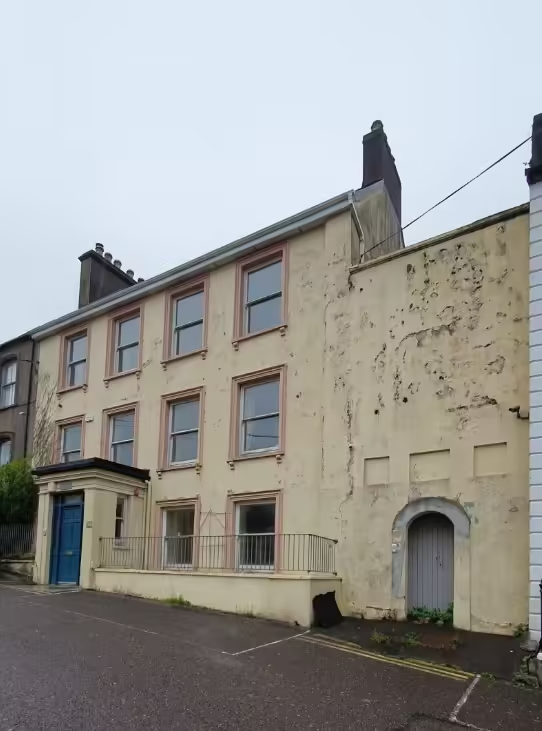The frustration is palpable, and the question echoes across the nation: how can a country grappling with a severe housing crisis allow state-owned buildings to lie vacant for years? This very question has been brought into sharp focus by Frank O'Connor regarding a prominent Cork property:
"Empty for 6 years and counting. Owned by the Irish Department of Justice. How does this make sense when so many need a home?"
Frank O'Connor
O'Connor’s post highlights Audley Place, Patrick's Hill, Cork—a building that, by all appearances, is a prime example of public assets remaining fallow while people who are homeless and those in precarious housing situations desperately seek shelter. The perceived paradox—a State department owning a vacant building for six years amidst an urgent social need—is not just a local Cork issue; it represents a broader, systemic challenge.
The Reality of Audley Place
While specific details about Audley Place's exact former use are part of its complex history, it has been identified as a property under the ownership of the Irish Department of Justice. For a significant period, it has remained unoccupied and unused, a silent testament to the slow grind of administrative processes. The visual of such a building, in a desirable urban location, standing idle, is a stark reminder of the untapped potential that could alleviate housing pressures.

Unpacking the Paradox: Why Does This Happen?
On the surface, it truly doesn't "make sense" to have vacant state property when so many need homes. However, beneath this immediate frustration lies a labyrinth of bureaucratic, financial, and procedural complexities that often lead to these prolonged vacancies. Understanding these factors is key to demanding more efficient solutions:
- Inter-Departmental Transfer Delays: A significant hurdle often involves the transfer of property from one government department to another, or to a relevant housing body. What might seem like a simple handover is, in reality, a protracted legal and administrative process involving valuations, legal title transfers, and formal agreements. These transfers can take years, as departments navigate their own internal protocols and government-wide asset management policies.
- Lack of Capital Funding & Planning: Even once a property is designated for a new use, substantial capital investment is almost always required. Older buildings, like Audley Place, often need extensive renovation to meet modern building standards, safety codes, and accessibility requirements for residential or public use. Securing the necessary funding, getting projects approved through public spending rules, and obtaining planning permissions (especially for older or protected structures) are time-consuming and can span multiple financial years.
- Defining a New Purpose and Scope: Before any work can begin, the precise future use of the building must be determined and legally approved. Is it suitable for social housing? A family hub? Emergency accommodation? Office space for another public service? Each option requires detailed assessment, cost-benefit analysis, and often, public consultation, all of which contribute to delays.
- Procurement and Tendering Bureaucracy: Once funding and purpose are agreed upon, the process of contracting architects, engineers, and construction companies through public procurement channels can be notoriously slow. Tendering procedures are designed to ensure fairness and value for money but can be susceptible to challenges, re-tendering, and extensive negotiation, further extending timelines.
The Human Cost of Delay
While these administrative explanations offer insight into how a building can remain vacant for so long, they do little to assuage the urgent needs of people who are homeless. The bureaucratic slowness and the financial complexities contrast sharply with the immediate and pressing human need for shelter, stability, and a place to call home.
Frank O'Connor’s observation serves as a critical call to action. It highlights the imperative for greater agility, transparency, and accountability within government bodies to ensure that public assets are efficiently repurposed to serve the public good, particularly in times of crisis. The question
"How does this make sense?"
must be answered not just with explanations of process, but with demonstrable action and a renewed commitment to utilizing every available resource to address the housing crisis.
